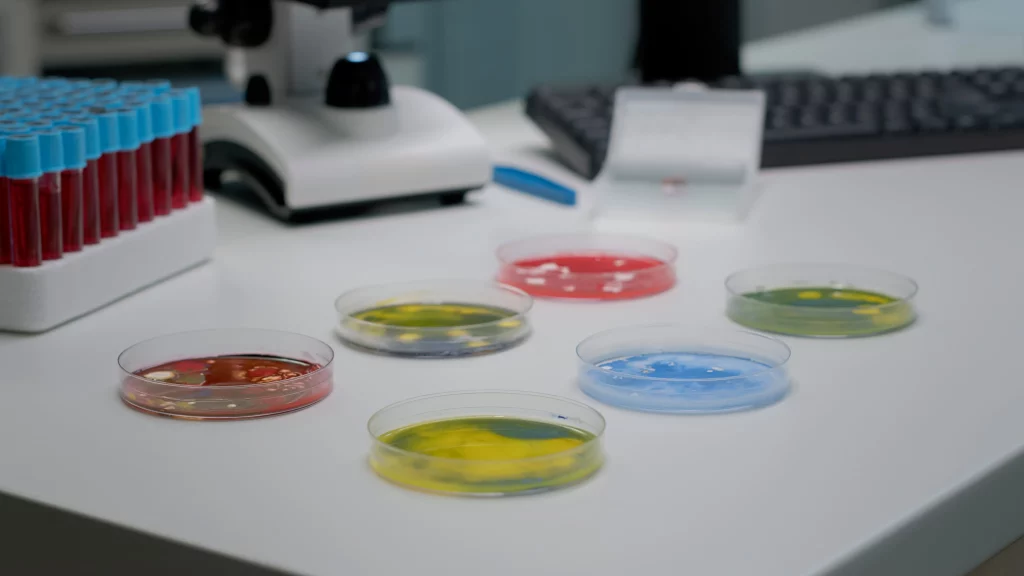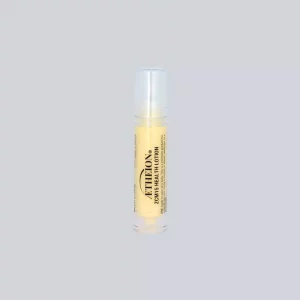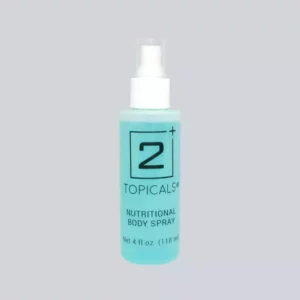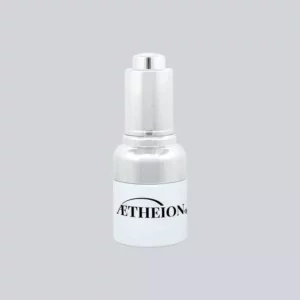Safe Cosmetics: Top 5 Ingredients to Watch Out For
Table of Contents
Navigating the world of cosmetics today can feel like walking through a maze. With countless brands, catchy packaging, and promises of glowing skin, it’s easy to get swept up in the hype. But beneath the surface lies a critical question: Are your cosmetics truly safe?
At AETHEION®, we believe that skincare should never compromise your health. That’s why we’re committed to educating you about safe cosmetic practices and ingredients—so you can make empowered choices for your skin and well-being. In this in-depth guide, we’ll explore essential warnings, decode common cosmetic ingredients, and help you recognize the safest products to nourish your skin.
The Hidden Side of the Cosmetic Industry
You may be surprised to learn that in many regions, cosmetic products aren't subjected to strict regulation. Unlike medications, cosmetics can reach store shelves without comprehensive safety testing. Manufacturers aren't always required to disclose full ingredient lists, and many use broad terms like “fragrance” to conceal potentially harmful substances.
In the U.S., for example, cosmetic safety regulations are limited. Companies often label their ingredient formulations as proprietary, meaning they’re not obliged to disclose everything to the public or even governing bodies. While reputable brands voluntarily conduct safety testing, this isn't the norm across the board.
The result? Consumers are left vulnerable to hidden toxins, allergens, and long-term health risks.
What Makes a Cosmetic Product Safe?
A safe cosmetic product is free of harmful chemicals, irritants, and toxic ingredients. But safety goes beyond what’s listed on the label—it’s also about how a product is formulated, manufactured, and tested.
Here are the key factors that define cosmetic safety:
1. Clinically-Backed Formulas
Clinical studies provide evidence that a product is not only effective but also safe for regular use. These trials test cosmetics on human volunteers to observe how ingredients interact with the skin and other substances like medications or environmental triggers. They also assess long-term impacts on dermal and overall health.
At AETHEION®, we believe that science-backed skincare is essential. That’s why our products are based on Redox Technology—a scientific approach to restoring balance in the skin by reducing oxidative stress and neutralizing free radicals.
2. Safe and Transparent Ingredients
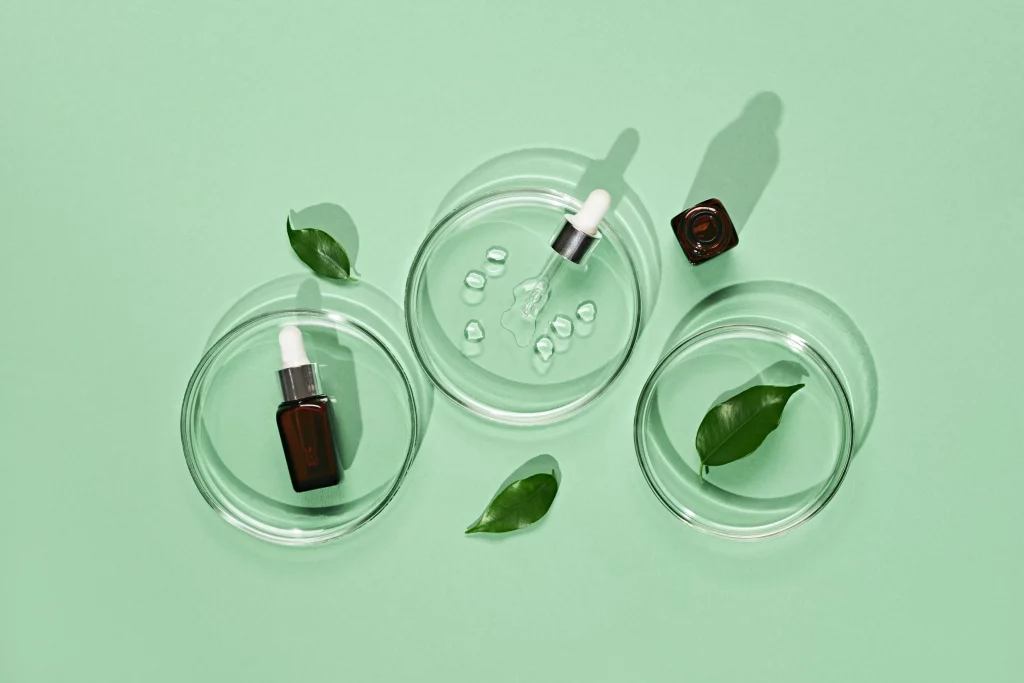
When shopping for cosmetics, the ingredient list is your best friend. But beware of misleading claims like “natural” or “hypoallergenic”—terms that aren’t regulated and can often be deceptive.
Look for products that:
- Are paraben-free
- Exclude phthalates and formaldehyde-releasing agents
- Contain no synthetic dyes or artificial fragrances
- Clearly list all active and inactive ingredients
All AETHEION® formulations include clear labeling and exclude harsh synthetics, focusing instead on synergistic blends of ionic minerals like Zinc, Copper, and Magnesium for revitalized, radiant skin.
3. Manufactured with Integrity – ISO GMP Certification
A trustworthy cosmetic brand adheres to Good Manufacturing Practices (GMP) and international standards like ISO certifications. This ensures quality control, safe environments, and consistency across every batch.
At AETHEION®, we strictly follow ISO GMP protocols, guaranteeing that every product—from our anti-aging cream to the mineral gels—is developed with your safety in mind.
The 5 Most Dangerous Cosmetic Ingredients to Avoid
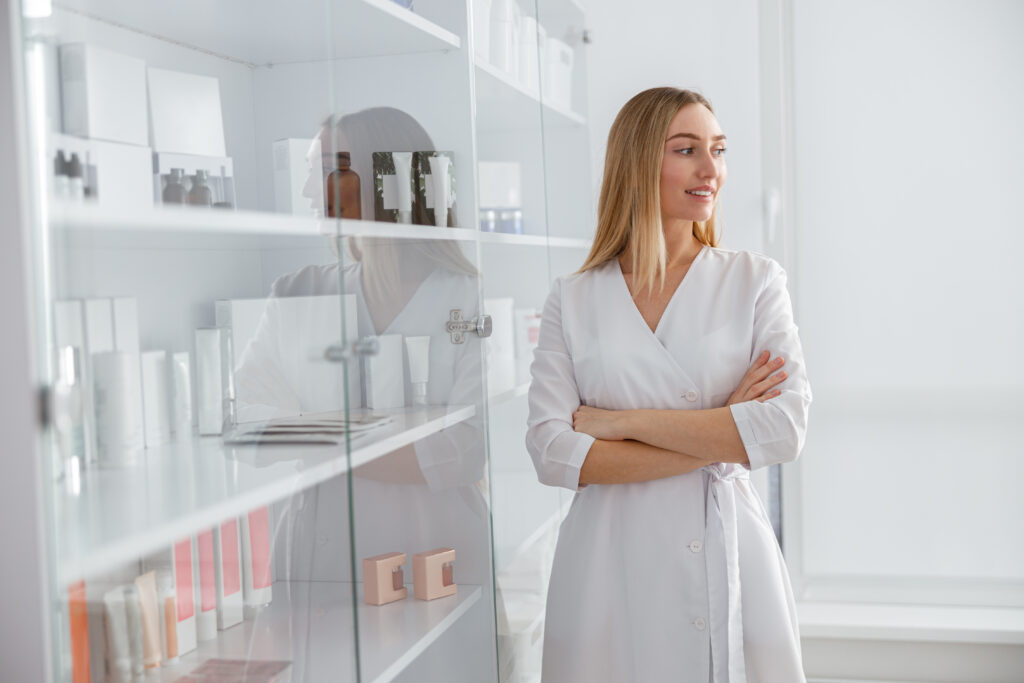
Understanding what not to use is just as important as knowing what to choose. Here are five ingredients that should raise red flags every time you read a label:
1. Parabens
These chemical preservatives prolong shelf life but can disrupt hormone balance by mimicking estrogen. Studies link parabens to breast cancer and reproductive toxicity. Choose products labeled paraben-free to reduce these risks.
2. Phthalates
Used to increase flexibility and longevity in products, phthalates are commonly found in fragrances, nail polish, and hair sprays. However, they’ve been associated with hormone disruption, asthma, and developmental issues.
3. Formaldehyde and Formaldehyde-Releasing Agents
Found in some hair straighteners and nail products, formaldehyde is a known carcinogen. Even at low exposure levels, it can cause allergic reactions and respiratory issues.
4. Synthetic Fragrances
“Fragrance” can be a blend of hundreds of undisclosed chemicals—some of which may include allergens, hormone disruptors, or carcinogens. Look for unscented or fragrance-free products to avoid these hidden toxins.
5. Heavy Metals (Lead, Mercury, Arsenic)
Heavy metals can sneak into your routine via lipsticks, eyeliners, and powders. Lead, for instance, has no safe level of exposure and can damage the nervous system, kidneys, and reproductive organs.
Reading Labels Like a Pro

When it comes to skincare, knowledge is power. Start by familiarizing yourself with essential label terms and how to interpret them.
Hypoallergenic
This label sounds reassuring, but it lacks a legal or scientific definition. Products labeled “hypoallergenic” aren't necessarily allergy-free or gentler. Always test a small patch of skin before committing to full use.
Organic or Natural
While “organic” must meet USDA standards, “natural” has no standardized definition. A natural source doesn't automatically mean it’s safe—arsenic is natural, after all!
Expiration Dates
Cosmetics aren’t legally required to list expiration dates, but that doesn’t mean they last forever. Monitor your products for changes in texture, smell, or color, and mark your calendar when opening new items to track usage time.
Safe Cosmetic Practices for Daily Use

Your daily beauty routine should be as safe as it is effective. Here are five best practices for using cosmetics wisely:
- Read the Label: Understand usage directions and ingredient warnings.
- Clean Hands First: Prevent bacteria from contaminating your cosmetics.
- Don’t Share Products: Sharing makeup can spread infections—especially post-COVID.
- Seal & Store Properly: Keep containers tightly closed and away from heat.
- Dispose of Expired Products: If the color, scent, or texture changes, it’s time to toss.
Choosing the Safest Cosmetics: A Checklist
When in doubt, use this quick reference checklist before buying or applying a cosmetic product:
- Free from parabens, phthalates, sulfates, and synthetic dyes
- Labeled as fragrance-free or unscented
- Features clinical trial data or third-party lab testing
- Packaged with a full ingredient list
- Manufactured under ISO GMP standards
- Comes from a brand committed to safety and transparency
Why AETHEION® Sets the Bar in Safe Skincare

Our commitment to quality, integrity, and science sets us apart. AETHEION® products are carefully crafted using advanced Redox Technology and IBAL (Ion Biotechnology Aqueous Ligands)—a proprietary complex that promotes optimal skin health and cellular rejuvenation.
Every formula is:
- Dermatologically tested and safe for most skin types
- Rich in skin-repairing ionic minerals like Zinc, Copper, and Magnesium
- Free of harsh additives and synthetic irritants
- Developed under strict manufacturing and safety standards
We don’t just promise skincare that works—we deliver skincare you can trust.
Frequently Asked Questions (FAQ)
Q: Are natural cosmetics always safer?
A: Not necessarily. While natural ingredients can be beneficial, they aren’t always non-toxic or allergy-free. Always check for third-party testing and ingredient transparency.
Q: What’s the difference between “fragrance-free” and “unscented”?
A: “Fragrance-free” means no fragrance compounds are added. “Unscented” may still contain masking fragrances to neutralize smells. Choose fragrance-free if you’re sensitive to chemicals.
Q: How can I tell if a product is dermatologist-tested?
A: Look for labeling or documentation on the product page. Reputable brands will provide clinical backing or third-party lab testing.
Q: Should I be worried about preservatives in cosmetics?
A: Not all preservatives are harmful. Some, like potassium sorbate and sodium benzoate, are generally recognized as safe. Avoid parabens and formaldehyde-releasing agents instead.
Q: How often should I replace my cosmetics?
A: Most cosmetics last 6-24 months after opening. Use Period After Opening (PAO) symbols when available, and discard products that change in smell, texture, or color.
Final Thoughts: Your Health Comes First
Choosing safe cosmetics isn’t about fear—it’s about being informed. By reading labels, avoiding toxic ingredients, and opting for products backed by science and ethical manufacturing, you take control of your skincare journey.
Remember: your skin is your largest organ. Everything you apply can either support or sabotage your long-term health. Make every drop count.
If you're unsure about an ingredient or product, don’t hesitate to reach out to the manufacturer or a licensed dermatologist for guidance.
Disclaimer: This content is for informational purposes only and not intended to substitute professional medical advice. Always consult a healthcare professional for personalized skincare and health guidance.
Experience the AETHEION® Difference
Ready to upgrade your skincare routine with safe, effective, and scientifically advanced products? Explore our complete line of Redox-based skincare at aetheion.com/shop and join a growing community that values both beauty and wellness.



